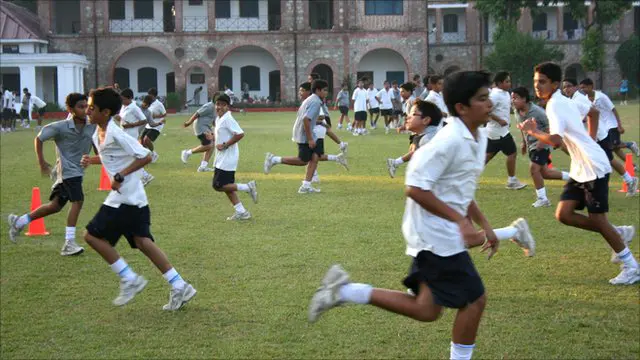Extracurricular club activities should be designed to entail an appropriate amount of practice, thereby enabling both students and teachers in charge of coaching them to enjoy and positively engage in such activities.
Regarding junior high and high school sports club activities, the Education, Culture, Sports, Science and Technology Ministry has notified boards of education to appropriately establish days on which students and teachers can take a rest from such extracurricular activities.
According to a survey conducted by the Japan Sports Agency on about 10,600 junior high schools, approximately 20 percent of them were found to have not even a single day a week for members of their sports clubs to take a rest. The figure exceeded 60 percent in Tokyo and Osaka Prefecture.
Excess in extracurricular athletic activities will lead to students suffering physical damage and mental burnout. If such activities leave students so greatly exhausted that they neglect their studies, it would be tantamount to mistaking the means for the end. The education ministry had good reason to call for improving the situation, saying that excessive extracurricular activities will “cause various forms of excess and harm to both students and teachers.”
Extracurricular activities are part of school education. The ministry’s teaching guidelines state that these activities help improve students’ desire to learn and nurture their sense of responsibility and togetherness. For many people who belonged to their schools’ sports clubs, the friendship developed through practice and games must be a great asset.
Extracurricular activities also play a role in producing athletes. There is a popular tendency to tolerate hard training by school sports club members, viewing them as standing at the forefront of efforts to reinforce competitive power. This tendency is particularly strong at schools that enjoy prestige due to their excellent achievements in each athletic event.
Utilize outside instructors
In 1997, a government panel of experts gave an example regarding how school sports clubs should be coached, stating that “junior high schools should give students two days to take a rest, and limit practice on Saturdays and Sundays to within three or four hours.” The fact is, however, that this advice has not sufficiently spread among such schools.
Efforts should be made to reconsider how extracurricular activities need to be conducted, so an environment can be created in which more students can enjoy sports. It is necessary to upgrade locally based and private-sector clubs so they can be used to accept students aiming to become top-notch athletes in the future.
Extracurricular activities are also a key factor of why teachers are so busy. They must devote their time to such things as training students and taking them to games.
Two years ago, the Yokohama City Board of Education set a day on which no extracurricular activities must be conducted. In January, the Osaka Prefectural Board of Education started testing a system by which prefectural schools are required to set aside a day for a rest every week, at least.
In the next fiscal year, the agency will also lay down new guidelines regarding such matters as practice time and days for a rest, after carrying out a survey that incorporates a medical point of view.
To steadily improve the situation, it is indispensable to actively utilize personnel from outside, other than teachers.
Some local governments have accepted boys’ baseball team managers, people who previously competed in sporting events and others as personnel in charge of coaching students. However, their status and responsibility are not necessarily clear. In many cases, they also are not allowed to take students to athletic meets as they are not teachers.
The education ministry will likely revise enforcement regulations for the School Education Law and encourage school authorities to appoint “extracurricular activity instructors” whose legal position is clearly defined, thereby overcoming the problems involved in the situation.
It is hoped that appropriate guidance will be thoroughly implemented in coaching students, thereby bringing to an end extracurricular activities that are excessively hard.
(The Japan News)
 简体中文
简体中文

